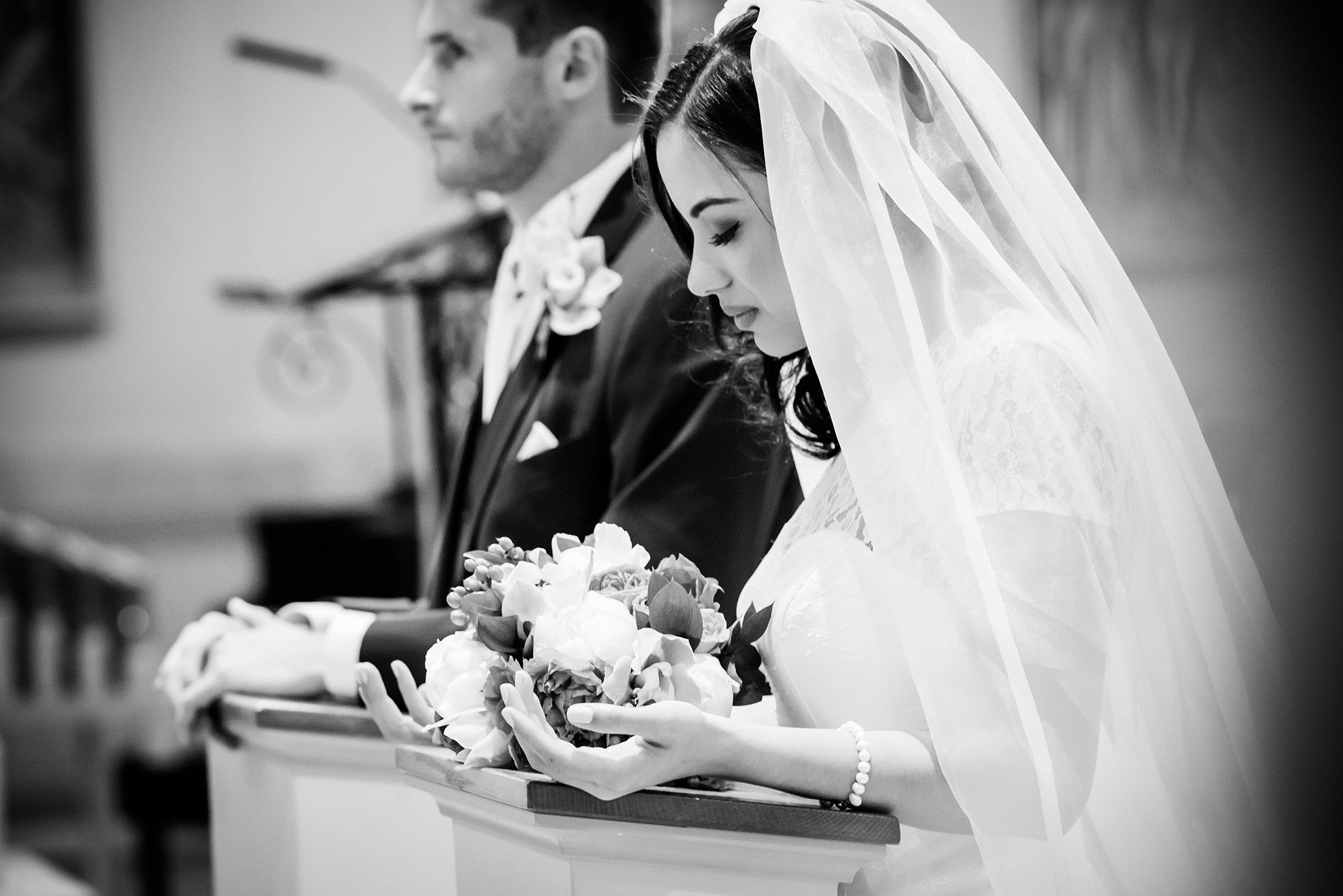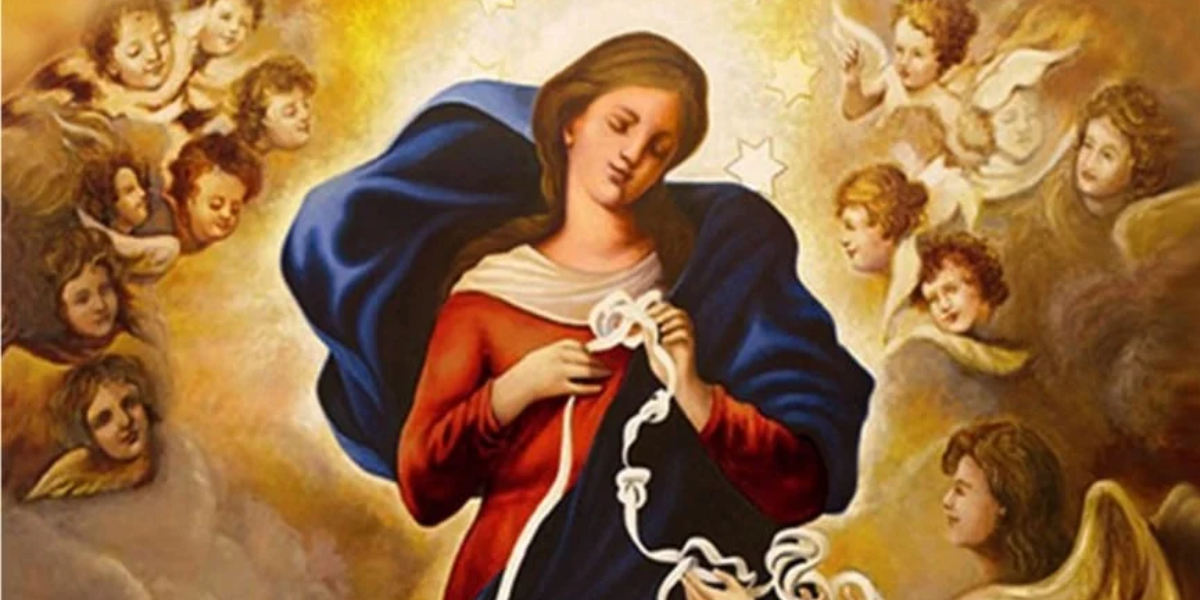Passing Down the Faith
According to Roman Catholic theology, the entirety of divine revelation and the Deposit of Faith is transmitted to successive generations by way of...
See how Witness to Love is responding to the different needs of couples through our other initiatives and offerings!
The Witness to Love Media Center features a diverse range of resources including articles, blogs, podcasts, and videos.
WTL hosts a variety of events ranging from certification trainings for marriage formation leaders to Date Nights for couples!
Through comprehensive resources and ongoing support, Witness to Love equips couples with the tools to navigate challenges and strengthen their bond for a lifetime of love in Christ.
Witness to Love provides church leaders with comprehensive training and resources to cultivate thriving marriages within their communities, fostering a culture of love, faith, and commitment.

A Catholic wedding is a thing of beauty- and I’m not just referring to the stunning photos! While the Church building rightly inspires awe, the magnificence of the architecture is meant to draw our hearts to the deeper reality of what is happening within its walls. Through the sacraments, God is welcoming, nourishing, blessing, consecrating, uniting, forgiving, and healing. Everyday. Everywhere. In the Sacrament of Matrimony specifically, the couple becomes a visible sign to the world of Christ’s love for His bride, the Church.
If you’ve chosen to marry in the Catholic Church, take a break from wedding planning to reflect on the Catholic Rite of Marriage and the implications it has on the rest of your lives together. If you’re already married, you too can benefit from revisiting the treasures found in the wedding liturgy!
A special shout-out to non-Catholic readers marrying a Catholic. It takes courage and immense respect to honor your future spouse’s faith and take the time to learn what makes this day–and your future marriage– not only special, but sacred.
The Celebration of Matrimony ideally takes place in the context of a Nuptial Mass when the bride and groom are both baptized Catholics. It can stand alone as a ceremony for two Catholics when a priest is not available and a deacon is celebrating, or when a Catholic is marrying a non-Catholic baptized Christian. Both options are valid forms of the Sacrament of Matrimony. A simplified version of the Celebration of Matrimony is reserved for cases where a Catholic is marrying someone who is not baptized. While this still constitutes a valid marriage, it is not sacramental. If the non-Christian person has a conversion and is baptized after the wedding, their marriage automatically becomes a sacrament (neat, right?).
In the Catholic tradition, baptized couples themselves are the ministers of the Sacrament of Matrimony. The priest or deacon is present to witness and bless the marriage, but the spouses confer the sacrament on each other.
The free exchange of consent between the bride and groom is what actually constitutes the marriage.
This consent is later consummated in the sexual union, making the sacrament complete.
Because of the sacrament’s sacred nature:
Couples cannot write their own vows, with rare exceptions under a bishop’s authority.
The vows reflect a covenant instituted by God—not a personalized contract.
What actually makes the marriage happen is the free exchange of consent between a man and a woman which the couple will consummate or act out in the sexual union later on. The vows are so important that, apart from rare exceptions under the authority of a bishop, you cannot write your own. Why? Well, because marriage is not a private reality, or something we create.
Marriage was instituted by God from the beginning (Genesis 1:26-28 & 2:18-25) and was elevated to the dignity of a sacrament by Jesus Christ (John 3:1-11 & Matthew 19:3-9). Marriage is a public reality that we enter into. And what we are entering into is not a contract– an exchange of goods and services, but a covenant– an exchange of persons. How this exchange happens matters.
Following the couple’s (or the bride’s) glorious procession down the aisle and the introductory prayers, the celebration continues with the Liturgy of the Word. This refers to the part of the Mass or ceremony where scripture readings take place. The priest or deacon preparing you for marriage will give you options for appropriate readings to choose from (you can also find them here). This is a great opportunity to meditate on biblical passages that speak to both of you and to honor family, friends, or mentors by asking them to read these passages at your wedding.
Be mindful about choosing persons who will approach this honor with respect. And don’t worry - father or deacon will go over all the proper etiquette for approaching the sanctuary during the wedding rehearsal!
The Celebration of Matrimony is at the heart of the Rite of Marriage. There are four elements of love on display in the words of consent, or vows the couple makes. Authentic love is free, total, faithful, and fruitful (life-giving). The couples will first be asked three questions affirming their intention to love in this unique way. Reflect on these and discuss them as you prepare for the sacrament.
It is especially important to consider the implications of the third question in which you are declaring before God, your family and your church community your openness to life (i.e to achieve or postpone pregnancy using only Fertility Awareness or Natural Family Planning methods) and to bring up your children in the Catholic faith- something mixed marriages should be aware of.
You will then consent to the questions asked by speaking these beautiful words. I highly recommend you meditate on and even memorize them (or the alternative form) before the wedding and say them often as a prayer afterward, especially during difficult times:
I, N., take you, N., to be my wife/ husband.
I promise to be faithful to you,
in good times and in bad,
in sickness and in health,
to love you and to honor you
all the days of my life.
After the vows, the rings will be blessed and exchanged. At this point, other customs and traditions can be introduced, such as the arras (coins), lazo, or veil. A beautiful Nuptial Blessing will follow which highlights marriage as “the one blessing not forfeited by original sin nor washed away by the flood.” It is a powerful prayer said over the newlyweds and one worth meditating on. We can write a whole blog just on the Nuptial Blessing, but for now, read it here!
The Liturgy of the Eucharist is the part of the Nuptial Mass where the newlyweds and their Catholic community partake in the body, blood, soul, and divinity of Jesus. This part is reserved for weddings in which both parties are Catholic. In the Old Testament, every covenant God made with his people was sealed with a sacrifice and a meal. Jesus is the sacrifice and the meal of the New Covenant, and so it is fitting that the marriage covenant be sealed with the reception of Holy Communion.
I vividly remember the experience of receiving our blessed Lord during our wedding Mass. I recall feeling in a very tangible way, Jesus binding himself to our marriage, knowing that without the love and mercy found in Him, we would fail at persevering in the vows we just made. I’ve never been more confident and trusting in God’s faithfulness than at that very moment.
The prayer said at the end of the ceremony or Mass is one of my favorite parts of the wedding liturgy. The three-part blessing points to three key aspects of a healthy marriage- love and unity centered in Christ, children, friendship and community, and the call to be good witnesses and serve others.
If later in life you find yourselves through a rough patch in your marriage, come back to this short prayer and evaluate the balance of these elements in your life. Have you been reluctant to pray individually and as a couple? Have you resisted opportunities to be a part of your parish community or to serve others? Reorder your life to make room for the graces found in living out this blessing.
May God the eternal Father keep you of one heart in love for one another, that the peace of Christ may dwell in you and abide always in your home. (Amen)
May you be blessed in your children, have solace in your friends and enjoy true peace with everyone. (Amen)
May you be witnesses in the world to God’s charity, so that the afflicted and needy who have known your kindness may one day receive you thankfully into the eternal dwelling of God. (Amen)
I hate to be the one to crush your dreams of walking down the aisle to “Can You Feel the Love Tonight” from The Lion King. Secular music cannot be used during the wedding ceremony for the same reason the priest cannot drink soda out of the chalice after Mass. It’s not what it was made for.
Your wedding is taking place in the context of the worship of God for bringing you together in Him. While you can choose the music for your wedding, these must be approved hymns written for the liturgy. The priest or deacon preparing you for marriage should give you appropriate options or connect you to the parish music director for guidance.
I pray that you’ve found here the inspiration to consider more intentionally the promises you’ll be making and the blessings you’ll be receiving on the day of your wedding! For additional resources for planning a Catholic wedding, visit these sites:
Excerpts from the English translation of The Order of Celebrating Matrimony © 2013, International Commission on English in the Liturgy Corporation (ICEL). Used with permission. All rights reserved.

According to Roman Catholic theology, the entirety of divine revelation and the Deposit of Faith is transmitted to successive generations by way of...

Marriage is a beautiful sacrament and a reflection of God’s love for His Church. However, like any relationship, it can face challenges that create...
 Read More
Read More